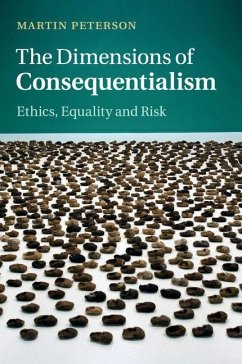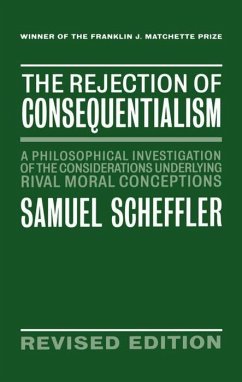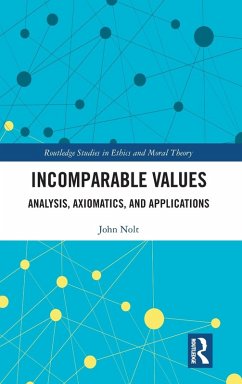
Commonsense Consequentialism
Wherein Morality Meets Rationality

PAYBACK Punkte
87 °P sammeln!
Commonsense Consequentialism is a book about morality, rationality, and the interconnections between the two. In it, Douglas W. Portmore defends a version of consequentialism that both comports with our commonsense moral intuitions and shares with other consequentialist theories the same compelling teleological conception of practical reasons. Broadly construed, consequentialism is the view that an act's deontic status is determined by how its outcome ranks relative to those of the available alternatives on some evaluative ranking. Portmore argues that outcomes should be ranked, not according ...
Commonsense Consequentialism is a book about morality, rationality, and the interconnections between the two. In it, Douglas W. Portmore defends a version of consequentialism that both comports with our commonsense moral intuitions and shares with other consequentialist theories the same compelling teleological conception of practical reasons. Broadly construed, consequentialism is the view that an act's deontic status is determined by how its outcome ranks relative to those of the available alternatives on some evaluative ranking. Portmore argues that outcomes should be ranked, not according to their impersonal value, but according to how much reason the relevant agent has to desire that each outcome obtains and that, when outcomes are ranked in this way, we arrive at a version of consequentialism that can better account for our commonsense moral intuitions than even many forms of deontology can. What's more, Portmore argues that we should accept this version of consequentialism, because we should accept both that an agent can be morally required to do only what she has most reason to do and that what she has most reason to do is to perform the act that would produce the outcome that she has most reason to want to obtain. Although the primary aim of the book is to defend a particular moral theory (viz., commonsense consequentialism), Portmore defends this theory as part of a coherent whole concerning our commonsense views about the nature and substance of both morality and rationality. Thus, it will be of interest not only to those working on consequentialism and other areas of normative ethics, but also to those working in metaethics. Beyond offering an account of morality, Portmore offers accounts of practical reasons, practical rationality, and the objective/subjective obligation distinction.












